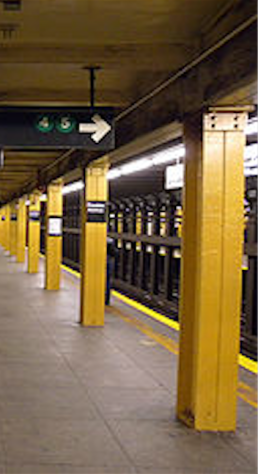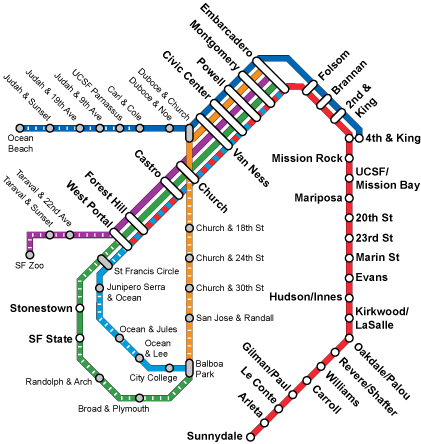Thanks for reading the Introductory post about Choosing Change, Choosing Change #1, Choosing Change #2, Choosing Change #3 and Choosing Change #4.
In Choosing Change #2: Safe People, Safe Places and Safe Processes, we explored the need to create safe places within our person and within our relationships, because safety, whether its experienced interpersonally (within yourself) or interpersonally (between you and another) helps us to feel calmer, which helps us to think clearer, which are both necessary ingredients we all need, especially when we're thinking about important decisions and changes that are before us.
So in this post, one of the things I'd like to talk about is how the internal safety we create for ourselves (sometimes called "mood regulation") not only helps us to make good personal decisions when we're worked up and feeling emotionally distressed, but it also contributes to our ability to "travel intentionally in the right direction." I've found that when I'm calm (vs. being flustered) has helped me to make thoughtful and intentional choices, which has helped me to experience success with my goals, values, behaviors and of course, in my relationships. So how do we develop this ability to "travel intentionally" and obtain good outcomes for ourselves and in our encounters with others? Let me explain.
For the most part, I've always had confidence with my "internal or cognitive GPS" system (Global Positioning System) which has helped me to travel in the right direction toward the locations and destinations that I needed to get to without getting lost.
However, this past summer my son and I had the opportunity to ride the subway system in New York City. Although we didn't get lost on the routes or trains we traveled on, we did get turned around, misdirected and we walked a lot as we tried to get to a street level exit at Grand Central Station.
During some of those moments I noticed I began to feel impatience, frustration and a little exasperation creeping up my emotional thermometer. If left unchecked, I knew I could have converted those troublesome feelings into speech and behavior that I'd regret.
Thankfully, since I kept my wits about me by trying to inject some humor into our trekking experience and by creating safety within myself, eventually, with our two heads working together, we located a ramp that led to the street and to daylight! I was glad to get to the street level, but even more importantly, I was glad that I didn't blow my top. I'm thankful that even though I felt those feelings, I made what I realize were appropriate thinking adjustments which helped me to experience calm and subsequently helped me to achieve the behavior and effect that I intended to achieve.
I call this "bio-psycho-social-spiritual" process that I experienced with my son "traveling with intention" and I'd like to share some insight with you that I learned as we walked in the subway that day. I think these insights could shed light on our ability to make good and intentional decisions to travel in the "right direction" with our thoughts, feelings and behavior, or conversely, to travel in the "wrong direction" with our thoughts, feelings and behavior. Lets take a closer look at this. One thing is for sure though: Our success will depend upon how we manage our biological, psychological, social and spiritual parts of ourselves!

As a person (who happens to work as a Psychotherapist), I value helping people to "travel in the right direction." For me, traveling in the right direction with my thinking, feelings and behavior means I'm expending my energy purposefully to ensure that the outcome of my behavior is intentional, predictable, goal-focused and directed, where I'll experience the least amount of deviation and variance in my effort to achieve the behavioral outcomes that are important to me. Practically, this means that I simply want to hit the targets that I aim for in life. Realistically, this means that I certainly don't hit bullseyes all or even most of the time with my thinking and behavior however, I've found that with practice, I don't miss the target(s) I'm aiming for too much either! How are you doing in your effort to travel in the right direction and in your process, hit the behavioral targets that you purpose and resolve to hit? If you're needing assistance, I encourage you to read further!
So lets keep this simple and get back to our subway, so that we identify how we could travel with intention and hit the behavioral targets that we intend to hit. As we do this, lets talk a little biology and physiology.
How do we get off track?

Your brain works remarkably well, in that it sends signals throughout your body somewhere to the tune of 270 miles per hour. With operating speeds like this, in a moments notice you could find yourself making sound and wise choices that you'll feel good about, or, you could find yourself making impulsive choices that you may regret faster than you could blink your eye!
This biological reality is important, especially when you consider that it also impacts your communication with others. Why is this so important? Because if your brain perceives or interprets that you're frightened, anxious or that you're being threatened, then a predictable set of physiological responses will occur within your body as your brain prepares your body to respond, usually by defending yourself.
We call these biological and behavioral responses "fight, flight or freeze" responses, which means if we think we're in danger of being attacked, again, whether its real or perceived, then we'll either...
- ...engage in a fight to defend ourselves, or,
- ...we'll take flight (i.e., run away) to avoid the perceived danger, or,
- ...we'll freeze and surrender, like an animal that realizes theres no escaping the attack.
These responses are hard wired into us and we're fitted with them to ensure our personal survival. However, a problem occurs (and it could be a big one) if we get "emotionally flooded" (or as Drs. John and Julie Gottman use the scientific name experience "Diffuse Physiological Arousal").
The Gottmans help us to see that if we feel too many strong emotions at the same time (like Anger, Guilt, Fear, Shame, Rage, Unsafe or Distraught) and whether we feel them over a short or prolonged period of time, then our fight, flight or freeze mechanisms get triggered and will spring into action with the speed of a bullet train.
But herein lies a major problem that I'd like for you to consider: Which direction will you be traveling toward when your body, in defense of yourself, catapults you toward the doors of your own "emotional and behavioral bullet" train?

One direction takes us toward Emotional Regression, where our defensive responses could cause us to engage in any of the "Killer D's" (Denial, Dishonesty, Defection or Diseased behavior to name a few). The "predictable stops and shops on this side of town" peddle drama, chaos, heartache and misery, in addition to relationship challengers like deception, insensitivity, resentment, self-centeredness and other schisms that are sought to "help" us defend ourselves but unfortunately wind up doing more damage than providing assistance to us.
The other direction takes us toward Emotional Regulation, which even in the midst of a perceived or actual threat, helps our brain to regain perspective and mindfulness which guides us to "do the next right thing." When we travel on this line and in this direction, the items that we acquire from the "stops and shops" help us to practice any of the "Empowering E's" (Empathy, Empowerment, Encouragement, Equality) and other useful skills, tools and relationship building words and behaviors which are more in line with our value system and how we've chosen to live.
Whichever direction we'll travel in will determine if we'll encounter personal or relational problems or solutions. Said simply, if we're able to help our brain and body to calm down, then we're more likely to hit the behavioral targets that we wish to achieve. If we remain worked up or emotionally roused, then more than likely the arrows that we release will miss their mark and go off in the forest, which is not the behavioral outcome that we're aiming for! So lets take a closer look at the two directions we could find ourselves traveling in.

Emotional Regression: Traveling in the "Red Light" Wrong Direction toward Unintentional, Unproductive and Unhealed Experiences
I've found that traveling in the wrong direction causes me to encounter or experience feelings and behaviors which are contrary to what I'd intend or what I'd like to deliver in my speech, actions and behavior with others. I'll simply head in the wrong direction and say and do things that I'll almost immediately regret because my internal cognitive GPS system momentarily malfunctioned due to the quick and rapid burst of neurochemicals and hormones that want me to defend myself and survive the perceived or actual threat that I could be accurately interpreting or misinterpreting poorly.
I've also realized that this unintentional (but sometimes intentional) trip in the wrong direction evidences thinking, emotional and behavioral processes from within myself where I'll manufacture, default to, but will usually demonstrate the use of Ego Defenses (like Attacking, Acting Out, Denial, Emotional Regression, Projection and Rejection to name a few), Cognitive Distortions (like Always Being Right, Jumping to Conclusions and Polarized Thinking) or Maladaptive Schema Modes (like Angry Child, Detached Self-Soother, Avoidant, Punitive Parent or Perfectionistic Overcontroller; we'll define in greater detail in the next post).
If you can identify with this, then let me share that the appearance and/or use of these "saboteurs" as I call them interrupt and impede our ability to travel with intention in the right direction because they cause us to emotionally and behaviorally regress into someone who is "younger than our chronological age" (think 2, 5, 8, 10, 13 or 16 year-olds who are frightened, panicked, selfish or egotistical).
Interpersonally, in my relationships with others, they cause me to create drama and chaotic encounters with others, because when I'm in a younger ego state typically two things tend to occur within me: First, I'll think that I can't meet my own needs (personal shame attacks that leave me feeling defective and younger than a teenager will do this).
Second, since I feel inadequate and bad about myself, I'll quickly move to seek and obtain false empowerment by engaging in entitled thinking that others owe to me some form of unearned, unrequested but warranted and satisfactory care and attention in order to make me feel better about myself! Talk about missing my target(s) and traveling in the wrong direction! These are the "payoffs" and outcomes that accompany Emotional Regression and if we could find someone to collude and comply with our way of thinking and behaving, then we've set up a game on the "Victim - Rescuer - Persecutor" Karpman Drama Triangle. Not good at all!
Simply put, when my sabotaging defenses, distortions and schema modes get the best of me, you'll notice that my actions indicate that I've gotten on the behavioral train going in the wrong direction.
Equally, when I open my mouth to speak, you're liable to hear that I've gone to the street level and "shopped" at some of those stops along the route and picked up some unproductive, maladaptive, painful and shameful items that are consuming me and that I'll more than likely project onto the traveler(s) with me.
Most of the time, when I get emotionally flooded, I certainly didn't intend to say or do the things that ultimately brought hurt to others, but unfortunately, these are very predictable features, behaviors and outcomes that accompanies traveling in the wrong direction. We get and do what we don't intend to do, simultaneously crippling our ability to make good, deliberate and thoughtful choices. Has this ever happened to you?
I've noticed that when this occurs (within me or) with a couple that I'm sitting with, they may start, intend or mean well, but when the emotional flooding and emotional regression occurs, the words, comments and direction they often take is in the wrong direction, and when we travel in the wrong direction, provocation (fight), non-participation (flight) or mummification (freeze) tends to emerge.
Here's an important point to pass along right now: We may be feeling threatened or feeling what we're feeling in that moment because we have a very valid and legitimate need that isn't getting met in that precise moment. Think about it, if we're threatened, we may need safety. If we're frightened, we may need comfort. If we're in trouble, we may need to be understood. If we're hurting, we may need empathy.
Our feelings are an important "thermometer" that provides useful data to us about our needs. In interpersonal relationships if we perceive that our needs aren't going to get met (by the Adult part of ourselves or from others in our life), then we may notice that these emotional and behavioral saboteurs will not only suggest alternative but ineffective remedies as we're catapulted toward the Emotional Regression train.
In my earlier example about feeling exasperated at Grand Central Station, what I needed was an end to the minor ordeal that was creating annoyance and confusion. As mentioned, my adult side of me "came to my personal assistance" by remembering to create, inject levity and treat my son and others as the human beings that they were, per my value system, versus treating them like inanimate objects who could be attacked simply because I wasn't getting my way in that moment.
Have you ever felt the way? Where a flood of feelings catapulted you to a younger place and you said and did things that you not only regret but are contrary to your own value system? Thats how quickly we could regress. One thing that halts the emotional regression and the traveling in the wrong direction is to create safety within yourself (breathing, pausing or grounding yourself) then ask yourself what do you need, then attempt as best as you could to deliver that need yourself. By the way, I never asked for directions from another person...what a set up to feel frustrated and annoyed! For me, when regression occurs, I think I need to do things all by myself versus involve the assistance of others. Ugh!
How do we exit the Emotional Regression Train?
Somehow, like I referenced earlier, we've got to get to the place where we're able to develop Emotional Self-Awareness. Creating safety within ourselves will help to facilitate Emotional Self-Awareness, wherein by awareness, introspection and reflection, we enhance our ability to feel our emotions, discover what we need, then "read and report" them safely and responsibly in a contained manner while we move to give ourselves what we need in those moments.
When we create internal safety and when we engage in Emotional Self-Awareness, then we'll notice that the Emotional Regression train slows or comes to an automatic or complete stop. This occurs because we've come to our own assistance by engaging in our own "bio-psycho-social-spiritual" grounding experience (Breakout Session #2) which not only facilitates self-love and self-care, but it helps us to "do the next right thing" by making appropriate speaking, listening and behavioral adjustment(s) with our personal and internal "thermostat."

The Emotional Regression train comes to a complete stop because our Functional Adult Ego state has come to the assistance of our triggered, younger, fearful, shamed or vulnerable part ourselves. Its the Adult part of us (our Adult Ego State) that helps us to calm down by engaging in good Right Brain activity. When inner calm is created and experienced, more than likely we'll notice that our Adult Ego state ushers in "logical Left Brain" suggestions that in effect help us to walk across the island platform in the subway station to catch the Emotional Regulation train, which is always the direction we wish to travel in regard to our personal experiences or in our experiences with others.
By continually practicing the suggestions listed below we may begin to notice that we hit the targets with our behavior more frequently. When we really become successful at creating safety for ourselves by developing Emotional Self-Awareness and by coming to our own assistance, then we'll be able to "hear the Emotional Regression train when it's pulling up."
Developing this level of acuity with your emotions as well as by identifying the needs you have, then working to fulfill your needs facilitates true (versus false) empowerment, choice and enhanced decision making abilities as you get to decide to not to get on the Emotional Regression train, but on the contrary, decide to wait on then board the Emotional Regulation train thats always heading toward intentional living. This is truly empowering!
Another thing. If you find yourself seated on the cross platform island and a life situation occurs that triggers a "fight, flight or freeze" response within you, remember that you do have a choice and the ability to create the bio-pscyho-social-spritual outcome and subsequently hit or achieve the valued targeted behavior that proves to be helpful to you and toward others in your life.
It matters greatly which direction you'll be traveling in when you get up from the seat on the platform to choose which direction you'll be traveling in. You do have a choice. Even if you take the Emotional Regression train to the next stop, just for one stop, you can always reverse your direction by implementing the suggestions below to convert any adverse thoughts, feelings, behaviors, energy and experiences into functional and desired thoughts, feelings, behaviors, energy and experiences, which is a reflection of your values and the solution oriented direction that accompanies Emotional Regulation.
Being able to decide which direction I need to take, then to proceed and walk over to the right train heading in the right direction helps me to hit the behavioral targets that I intend to hit and I realize this is a marker of personal maturity, as my Adult Ego state is becoming wise or "skilled at living" (as is the definition of Sophia, the Greek word for Wisdom).
Could you see yourself practicing and getting better at developing and using these skills in your effort to come to your own assistance or to the assistance of any relationship that you value? What skills or processes might you need to develop, or resources might you need to acquire that will assist you to be successful with your resolve to exit the Emotional Regression train?

Emotional Regulation: Traveling in the "Green Light" Right Direction toward Intentional, Productive and Healing Experiences
I've come to realize that traveling in the right direction with intention is a reflection of the Adult part of us using our psychological tools to create safety inside ourselves (Choosing Change #1).
When we use our tools to create safety within ourselves then we're more apt to think Logically, Therapeutically, Reasonably and Responsibly, which helps us to come to our own assistance effectively (Choosing Change #2) and eventually to the assistance of others (Choosing Change #3).
We know that we're traveling in the right direction when we're "Gardening with Intention" because our behaviors reflect that we're being edified and strengthened by the values and behaviors that are important and are a necessity to us (Choosing Change #4). To me, this process speaks to and builds within us the ability to hit targets that are meaningful to us as we endeavor to Travel with Intention.
But before we talk a bit more about the benefits of Traveling with Intention because of Emotional Regulation, let me ask a question. What happens if you're going in the right direction with your thought, feelings and behavior and just for a brief moment, you've made a mistake, got on the Emotional Regression train, headed in the wrong direction and briefly engaged in some form of thinking and behavior that you regret doing?
We've all done this ("pop off" at the mouth or created dramatic exits by slamming doors or leaving a gathering of others self-righteously by posturing as a Victim, but maybe I should speak for myself!). If we've engaged in regretful behavior like this which has taken us in the wrong direction, even for "one stop" in that emotionally regressed direction, then we'll need to "re-mind" ourselves that we can equally and just as rapidly reverse our direction with a few deep breaths and the practice of a few constructive behaviors.
This brief way of creating calm helps us to stop the train, exit the train, walk across the train island platform and board the train thats traveling in the intended direction that we need and want to take, toward the goal intended behavior that makes sense to us and to those around us.
We need to know that in the blink of an eye we can reverse our direction when we use our tools to effect the bio-psycho-social-spiritual outcome within ourselves and between us and others. Tools that increase our Mindfulness, Awareness, Consciousness and Conscience enhancement while also facilitating our Acceptance of situations and developing our Commitment to change ourselves helps us to exit regressive moments and simultaneously empowers us to live intentionally. Theres no easy way around doing this work in the garden of our lives but if we do this necessary work, we'll notice we'll experience power and progress as a result of our labor.
So in closing this post let me suggest a few activities and ideas that could prove to be helpful to you as you endeavor to "Travel (through life) with Intentionally:"
1) Remember, traveling with intention flows from gardening with intention. When we garden with intention we're consciously contemplating what are the skills, tools, values, mores, ethic and behaviors that we wish to live by, because they are good, productive, edifying and useful.
The use of these tools and processes (please visit the links above to "Mindfulness, Awareness," etc.) helps us to not only course correct with the direction we're heading, but they also help us to hit the thinking, emotional and behavioral targets that are important to us and to develop the outcomes that mean something.
2) Practice and become proficient with your Spiritual Disciplines.Your involvement and development of your spiritual disciplines could help you to experience self-awareness, enlightenment, empowerment and wisdom, among other gifts to your person and to others.
These disciplines (Study, Prayer, Reflection, Meditation, Solitude, Silence, Fellowship, Fasting, Worship, Giving and Service to name a few) when practiced consistently tend to help us to feel centered, grounded, confident and serene, which are necessary experiences that help us to halt then exit the train going in the wrong direction. They also facilitate discernment and guidance, which helps us to proceed to travel in the right direction with intention.
Which of these spiritual disciplines could help you to clearly hear then experience your Higher Power? How has (or could) the practice of your disciplines help you to travel in the right direction with intention?
3) Ask yourself this simple question, then respond as best as you can: "What am I needing right now and what's the best way for me to meet my need?" Remember, your response doesn't need to be perfect; just do your best to identify your need, then use your personal resources or avail yourself of other human voices in your effort to receive consultation and come to your own assistance.
4) Remain "A-C-T-I-V-E" in your process. We'll talk extensively in the next post about how this acrostic is helpful in eliminating our saboteurs, but for now, I'll simply encourage you to continuously...
A: Be AWARE of how your past experiences (Family of Origin Schemas) could trip you up
C: CHALLENGE, CHANGE and replace unwanted Schemas with adaptive and Adult ones that work
T: TERMINATE any destructive Ego Defenses and Cognitive Distortions
I: INVESTIGATE what Values and Virtues are sensible to live by
V: VALIDATE yourself by living according to Values and Virtues that are reasonable
E: EVALUATE if your choices and behaviors are achieving the outcomes you want
This type of "A-C-T-I-V-E-ity" helps us to define whats important to us that we wish to organize our lives around. When we do this, we may find that we feel lower amounts of distress, that we're able to take care of ourselves and in the process, to adequately meet our own needs.
In addition, we may find that we're not threatened when another person close to us has a different way of "a-c-t-i-v-e-ly" living their life. We may find that we appreciate the work they are doing and can support and enjoy their accomplishments without feeling we need to challenge, change or control them, nor view them with contempt. This "self and other" process describes a very valuable psychological principle called "Differentiation."
5) What "businesses, shops, stores and communities" will you visit as you endeavor to travel intentionally? What needs will you focus on satisfying within yourself or within reason with others? What tools will you acquire for your life journey? What self and other knowledge do you need to develop? What additional relationships are necessary and could prove to be productive to you?
I've learned which stop Mercy's is located at (on Renewal Road and they deliver daily!). In addition, I have high appreciation for what I've received from Grace's Goodies, located across the street from Mercy's. I've received gifts from Grace's that I treasure to this day!
One of my favorite stores that I try to shop at frequently is Humanities (at Reflection and Discovery Lane) which seems to offer the best that humanity could deliver, like Respect for others, Empathy for my soul and others, and Simplicity for my home interior). What stores might you want to locate and frequent on your own journey?
6) What skills might you need to develop to travel intentionally? Learning how to read a map (that is, read and do the next right thing in relationships) has proven to be a helpful skill in my effort to successfully select the right train platform and the appropriate train to board to travel in the right direction.

Knowing which conversations lead to futility, which interpersonal encounters I need to have immediate talking and listening boundaries with in addition to not accepting "free tickets for the Drama train" when offered have helped me to live life with less regret!
Learning how to manage certain psychological processes have reduced chance occurrences, because to not do so would open the door to unnecessary error, which results in misdirection, getting lost in quagmires accompanied by frustrating feelings to boot!
(Here's a shout out to my first ministry job after college, which was located at Duboce and Noe, top blue line accessible by the N - Judah!).
PS: Knowing how to read the "psychological processes" map has helped me to avoid the Museum of Historic Resentments and Personal Grievances (on Victim Blvd.) or the National Gallery of Maladaptive Schemas (on Persecutory Way.). These sites have maladaptive schemas, maladaptive schema modes, cognitive distortions and ego defenses that I'd just as soon not visit anytime soon (but we will in our next post)!
7) Finally, being aware of and attending to our 7 Core Areas and how focus, deliberation, balance and action in these areas of our life could not only yield guidance with our choices but also fruitful progress is crucial.
A brief word about how each of these areas could help us to course correct and travel intentionally is...
a) Spiritual: As mentioned earlier, what spiritual practice or spiritual processes (breathing, meditation, reflection, mindfulness, scripture reading, prayer, etc.) could help you to achieve inner awareness and simultaneously to remember the values you've chosen to live by?
b) Cognitive: What thinking then action process(es) could you practice (i.e., "S-T-A-R" or Stop, Think, Act and Review) that could help you to challenge then "kill any A.N.T.S" (Automatic Negative Thoughts) that threaten to flood your mind with messages connected to feeling defective, like a failure or that would permit entitled thinking could lead you to attack others? Which of your values, when implemented, help you to defuse your behaviors?
c) Emotional: How could the practice of any "Empowering E" behavior (i.e., like Empathy, which means "to project yourself into what you observe") help you to "drop your rock" and reverse the direction of your behavior toward others, where you demonstrate actions like sympathy and compassion, which are behaviors that promote safety, connection and healing?
d) Physical/Biological: What systemic and immediate changes might you consider making with your daily schedule to decrease or eliminate any physiological distress that could be complicating your ability to travel and live purposely, holistically and with intention?
e) Sexual: How are you valuing (versus abusing or misusing) this sacred part of yourself so that you feel honored, special, prized and alive? How are your behaviors a reflection of your decision to travel and live with intention, so that whoever you share your sexuality with you're both experiencing a similar and kindred intentionality?
f) Social/Relational: Who are the "T-E-A-M-mates" ("Thinking - Emotional - Actions - Mentoring - mates") that you'll want to connect with, who you can count on, who will help you to be successful on a day-to-day (or definitely as needed) basis, in season and out who will help you to be successful with your resolve? What specific role could they fill that will be helpful? What instruction do you most need to hear from them?
g) Environmental: In what way are you using your life energy to make the world you live in a better place, perhaps one conversation or one encounter with the person closest to you? Are you redirecting your energy towards building versus damaging, generatively versus stagnation and empowerment versus disempowerment? Are you making immediate and conscious choices to "do the next right thing?"
In our next post, we'll look take a closer look at the cognitive and emotional saboteurs that create internal and relational distress, and how "being A-C-T-I-V-E," in addition to the development and application of additional adult and solution-focused skills could be helpful to us.
Allow me to end this post with what could be some familiar words to many:
Psalm 23:1-4: "The LORD is my shepherd, I lack nothing. He makes me lie down in green pastures, he leads me beside quiet waters, he refreshes my soul. He guides me along the right paths for his name’s sake. Even though I walk through the darkest valley, I will fear no evil, for you are with me; your rod and your staff, they comfort me." (TNIV)
Thanks so much for reading these posts. Future posts on Choosing Change will be labeled “Choosing Change #6,” “Choosing Change #7,” “Choosing Change #8” and so on.
Also, as time permits, please visit the other blogs written by Dr Ken McGill: Daily Bread for Life and “3 – 2 – 5 – 4 – 24″ for additional information that could be helpful. I welcome your comments below or via email and your favorites, your retweets and your “+1’s” if you have a brief moment and find the information helpful. Again, it is my desire to provide the very best info for your consideration.

No comments:
Post a Comment